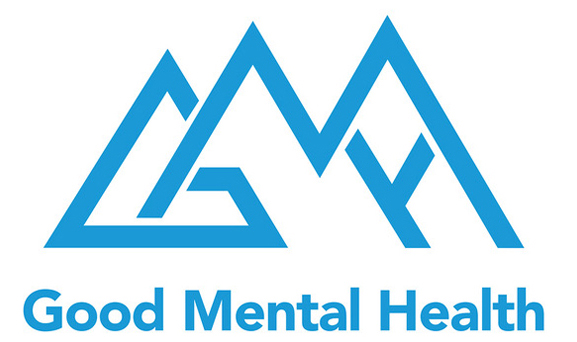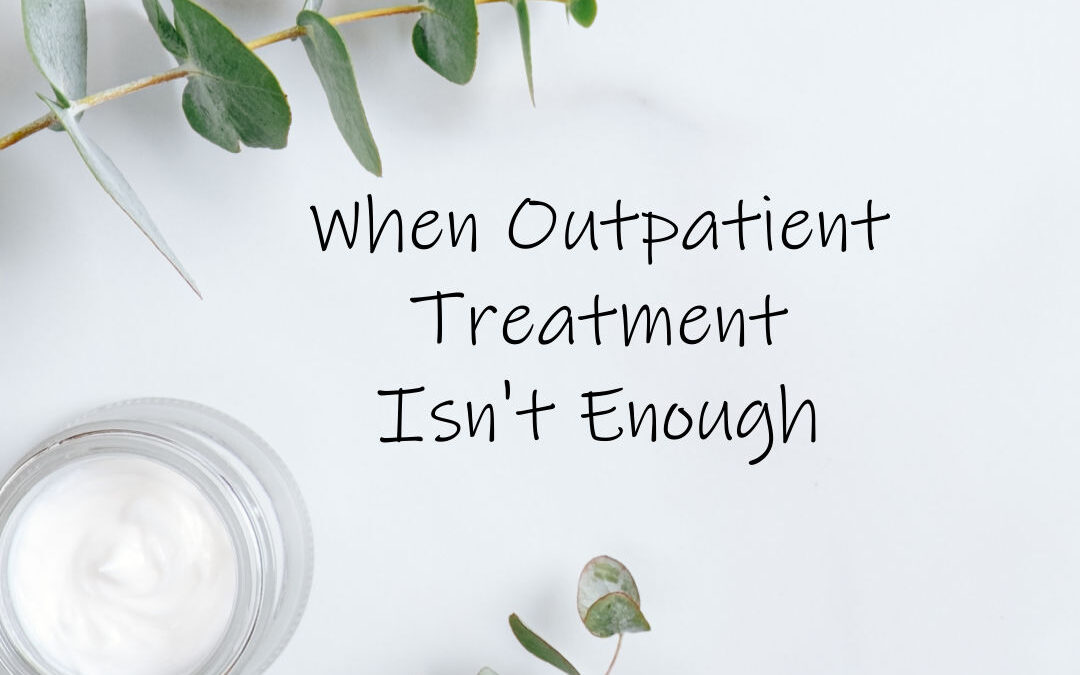When outpatient treatment isn’t enough
As a therapist in private practice, I typically see clients one hour per week either in my office or online via telehealth.
In the event a client is going through a difficult time, that frequency of treatment can increase up to two or three hours per week for a limited duration.
But, at some point, if the frequency and intensity of our sessions is pushing past the limit of what outpatient treatment can provide, we find ourselves discussing alternatives to outpatient therapy; those alternatives include Intensive Outpatient Programs and Partial Hospitalization Programs.
What is the difference between an IOP and a PHP?
When deciding how much support is needed- above what outpatient therapy- can offer, I think of making recommendations based on levels of care.
As a mental health provider, I want to offer the most supportive, effective, and best therapeutic services available while safely maintaining the client in the least restrictive environment possible.
As a result, an Intensive Outpatient Program or IOP, by definition, offers programming a minimum of 3 hours per day, at least 3 days per week, for a duration of up to 2 months. These programs are often offered from 9:00AM-12:00PM, or alternatively 6:00 PM to 9:00 PM, allowing clients the opportunity to attend their IOP program while maintaining a regular work schedule. IOP’s typically offer support in the form of group therapy, 12-step programming, and community support. In the field of addiction treatment, IOP’s tend to “fill the gap” of unstructured time during which clients are at greatest risk of substance use and subsequent relapse.
Conversely, a Partial Hospitalization Program, or PHP, offers programming a minimum of 5 hours per day, 5 days per week, for a minimum duration of 2 weeks to up to a month. The idea of a Partial Hospitalization Program is that clients need a break from their normal routine to focus on healing and recovery. Although they may not need to be hospitalized 24 hours per day, the client would still benefit from the structure and intensity that a hospital program provides such as medically assisted therapy, as well as group, individual, and family therapy. Oftentimes, a Partial Hospitalization Program is the recommended next step following a crisis that led to an in-patient hospital stay.
The types of issues most often treated by these programs: mood disorders, eating disorders, substance abuse disorders, trauma, grief and loss, co-dependency, anxiety, depression.
Local resources in the Jacksonville, Florida, metropolitan area:
Intensive Outpatient Programs:
Partial Hospitalization Programs:
When to Consider an Intensive Outpatient Program vs. a Partial Hospitalization Program is written by Diana Brummer, MSW, LCSW, a psychotherapist with over 20 years’ experience working with couples and families. She provides psychotherapy services in Saint Johns, Florida. Offering individual, couple, and family counseling in-person and online. Find more resources in the Jacksonville metro area by visiting our website.
Please note: the post may contain affiliate links.
For more information on building healthy relationships, book recommendations, and relevant blog posts, please visit our website at https://goodmentalhealthllc.com/

Good Mental Health, LLC is a counseling and coaching practice located in St. Johns, Florida, offering individual and family counseling to adolescents and adults. With sessions available face-to-face and online, we hope to provide the tools and skills necessary to heal past wounds, grow healthy relationships, and build strong families. For more information contact us here.


 Hi, I'm Diana Brummer a psychotherapist, writer, and coach in St. Johns, Florida. I love helping people thrive in their relationships and their lives. My hope is that you find the information in these articles educational and useful. Thank you for stopping by!
Hi, I'm Diana Brummer a psychotherapist, writer, and coach in St. Johns, Florida. I love helping people thrive in their relationships and their lives. My hope is that you find the information in these articles educational and useful. Thank you for stopping by! 
